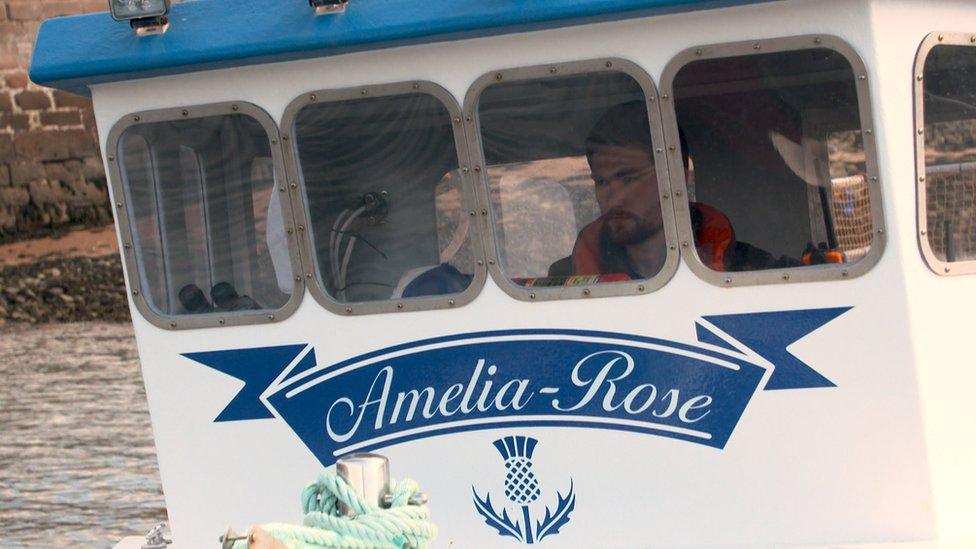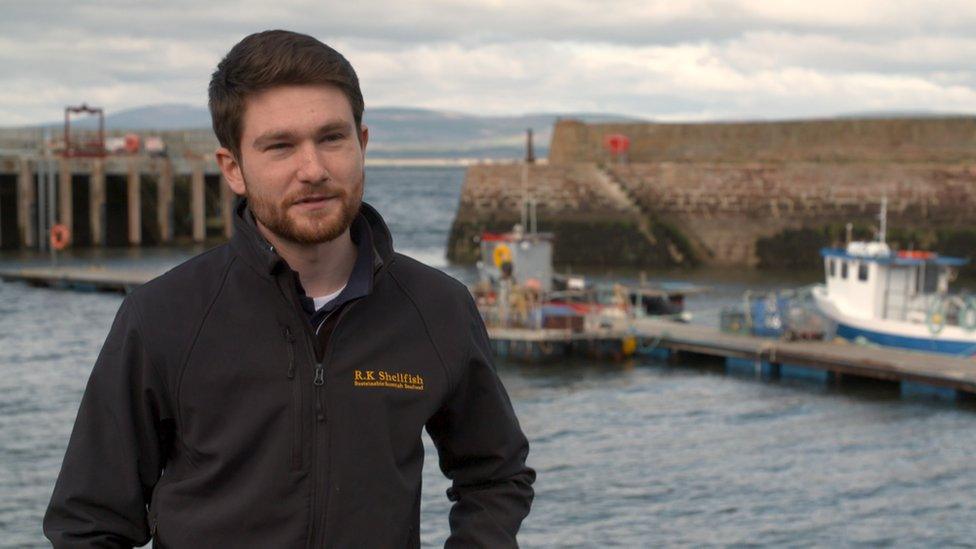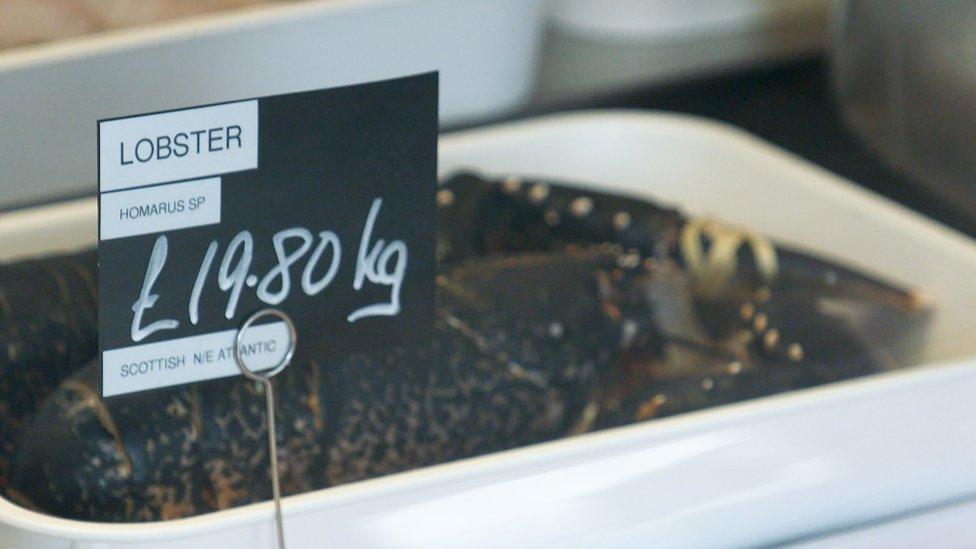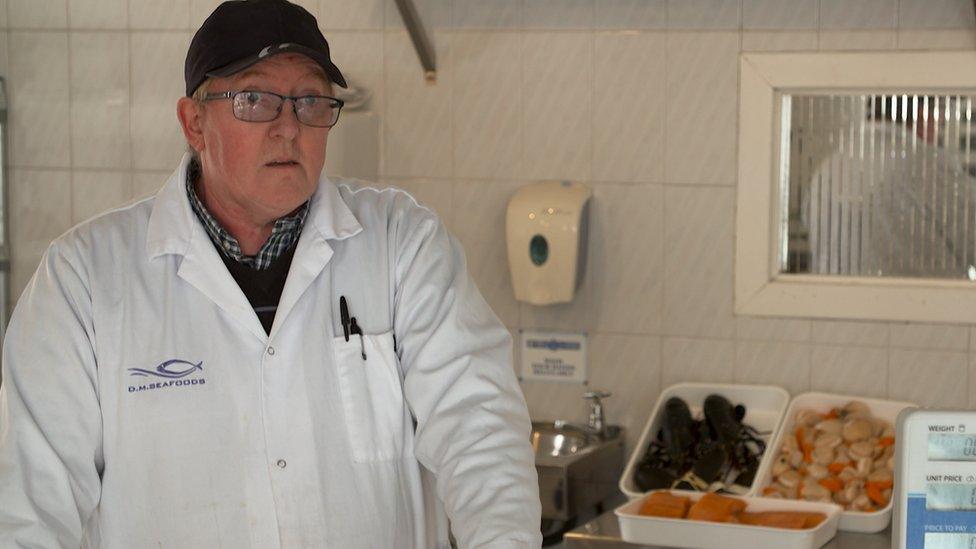Seafood fishermen adapt to catch local markets
- Published

Rhys Kennedy, who skippers the boat Amelia-Rose, now sells locally
Much of the Scottish fishing fleet is tied up because continental markets have been closed due to the coronavirus pandemic.
But some fishermen are having to be creative in what they do so they can still make a living.
The seafood and shellfish which is still being caught is being made available locally, sold online or delivered direct to customers' doors.
And there is a hope this might continue post-coronavirus.

Rhys had been selling the shellfish he caught to Spain
Rhys Kennedy is based in Cromarty on the Black Isle and is the skipper of the boat Amelia Rose.
"Previous to the coronavirus outbreak I was supplying the Spanish market with velvet crab, lobster and brown crab," he says.
"Come the coronavirus, we have had to adapt our means to avoid the boats being tied up."
Rhys says he asked the community if there was any interest in a local market.

Lobsters are among the seafood on offer
"It has been absolutely fantastic," he says.
"We realised the European market was a useful asset but in times like this it's nothing you can count on," adds Rhys, who has also started delivering his produce to customers.
And he is not alone. In small communities around Scotland similar things are happening.
Bally Phillip, who fishes out of Kyleakin, says: "I have been doing local sales every Thursday and several of the other boats have been doing sales on alternate days.
"Although there is not a huge market here within the local community we are getting a lot of support. We are hoping that this might be something that continues and something that develops over time," he says.

David Mackenzie says local demand for fish has increased
In Ullapool business is brisk for fishmonger David Mackenzie.
With the restrictions allowing only one person in his shop at a time, people wait in line, observing social distancing.
David has also started up a local delivery service as well.
"The demand is definitely there," he says. "It's stronger than it was prior to the virus, there is no question about that.
"We do deliveries every day. It's hard work but it's working."
Some campaigners say the changes being seen to the markets for seafood could be continued post-coronavirus, and offer significant opportunities for coastal communities.
Nick Underdown, from campaign group Open Seas, says: "Our supply chains are long and our inshore fleet's markets are far away.
"If we want to re-localise our supply we are going to have to start investing in our infrastructure for that. We are going to have to re-localise some of those processing jobs and I think that would be good for the local economy in Scotland."
For fisherman Rhys there is no doubt coronavirus has changed things and will continue to do so.
He says: "If coronavirus didn't happen when it did what I am doing now wouldn't have happened at all. It didn't even cross my mind.
"It has shone a light on what's here and it's a market I hope to fulfil post-coronavirus and to carry on into the future."